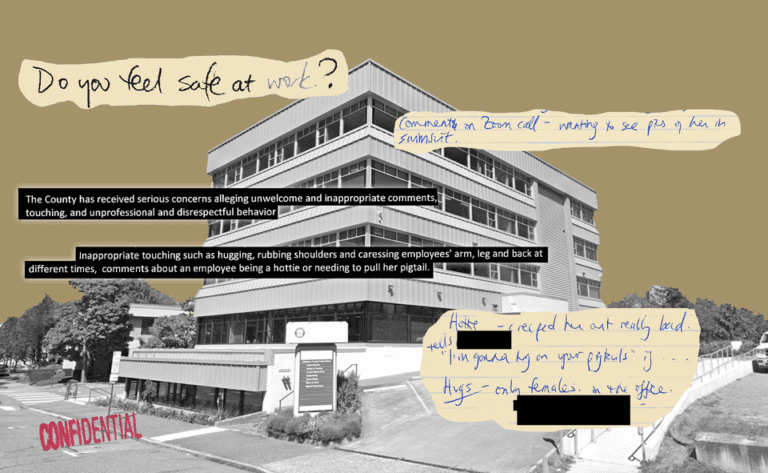While Bellingham leaders consider loosening rules for accessory dwelling units, or ADUs, a state senator from Bellingham is pushing a bill that would go even further to encourage the construction of backyard cottages on the same lot as single-family homes.
Sen. Sharon Shewmake is the lead sponsor of what is essentially the same legislation she championed in the House a year ago. Senate Bill 5235 would require all but a handful of rural counties in the state to allow at least two ADUs on most urban residential lots.
Bellingham has allowed ADUs — either attached to the main residence or detached — everywhere except the Lake Whatcom watershed since 2018. But Shewmake’s bill has provisions that are still the subject of spirited debate in Bellingham, or appear to be rejected altogether.
SB 5235 would allow absentee homeowners to build ADUs, effectively doubling or tripling the number of units they could rent on their property. Since January, the Bellingham City Council has been debating the same point: whether to waive a 2018 rule requiring the owner to live on the property if they build an ADU.
At a Feb. 13 meeting of the council Planning Committee, council members signaled they would reject that recommendation and keep the owner-occupancy requirement.
The committee, consisting of three of the seven council members, voted unanimously to maintain owner occupancy on properties with ADUs. This was an advisory vote; a final council decision on the new ADU rules isn’t expected for another month or two at least.
Planning committee member Dan Hammill said during the meeting that he had a change of heart about the owner-occupancy rule. Supporters of the rule have said it would prevent investors from buying up houses as rental properties, further shutting out home buyers in an already overheated real estate market.
“I didn’t really believe that there would be a land run on single-family homes and ADUs by investors and developers,” Hammill said, “but … we are seeing that in other states, like California.”
Shewmake, an economics professor at Western Washington University, said arguments claiming investors would buy up Bellingham’s housing stock “don’t make sense from an economic perspective.”
“Ferndale is not experiencing that at all,” Shewmake said. “If anything, Ferndale went farther than Bellingham has” in relaxing ADU regulations.
Ferndale does not require an ADU owner to live on-site but still isn’t receiving as many ADU applications as it would like, Shewmake said. On Feb. 15, Ferndale announced a promotion giving away Metallica-themed T-shirts to the first 10 people who build an ADU on their property.
“Building an ADU is great for Ferndale,” Mayor Greg Hansen said in a news release about the free T-shirts. “It adds to our housing supply, provides opportunities for rentals or aging in place, and utilizes existing city infrastructure.”
“I think Bellingham should be doing this,” Shewmake said — encouraging ADU construction, that is, not giving away T-shirts. “I think they should be bold in doing away with owner occupancy because we’re in a housing crisis.”
Shewmake’s bill also would allow property owners to sell their ADU outright to a prospective homebuyer — what’s being referred to in unwieldy terms as the “condominiumization” of ADUs. The Bellingham City Council hasn’t even begun discussing that option yet.
While a debate persists in Bellingham over whether ADUs are affordable housing or yet another profit opportunity for investors, in any case they are a small piece of the overall housing puzzle. The city has received about 50 building applications for ADUs per year since relaxing its rules in 2018. Over that same period, it has been processing building permits for 700 to 800 units in multifamily dwellings annually.
Given the small role ADUs play in Bellingham’s housing picture, Hammill questioned whether long deliberations over ADU rules were a good use of council’s time.
“I think spending this amount of time on something that is very, very low impact, and will never be approaching the impact of multifamily or single-family permits to me is just — it’s not quite a fool’s errand, but it sure seems to look like that on the surface,” Hammill said.
In any case, all of the Bellingham council’s work to adopt new ADU rules could be swept away by Shewmake’s bill or separate ADU legislation, the bipartisan House Bill 1337, if either becomes law.
In fact, ADUs are a small piece of what some state lawmakers are trying to do to bring more density to residential neighborhoods. House Bill 1110, which also has bipartisan sponsorship, would effectively eliminate single-family zoning by allowing four- and six-plexes on lots originally intended for one home.
But Shewmake said both ADU bills currently churning through legislative committees remain important. She asserted that encouraging ADUs benefits individual homeowners more than real estate investors.
“I’m not going to build a 50-unit complex,” Shewmake said. “But I could scratch together enough savings to build an ADU and have an impact on my community that’s otherwise left to the big developers.”




